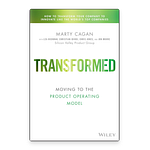This book provides practical strategies for women to balance assertiveness with likeability in the workplace, reshaping cultures to foster both career advancement and gender equity.
Business leaders, managers, and professionals can learn how to navigate workplace challenges, build respect and status, and create supportive organizational environments for women to thrive.
1. The Workplace Paradox for Women
Women often face the challenge of balancing assertiveness with likeability. While being confident and outspoken is essential for career growth, women are frequently judged harshly for these behaviors, being labeled as “bossy” or “aggressive.” This paradox can make it difficult for women to climb the corporate ladder without facing pushback.
Take Sarah, a marketing manager, as an example. Whenever she spoke up in meetings with innovative ideas, her male colleagues would often ignore her. However, when another male colleague repeated the same idea minutes later, it was met with approval. This scenario plays out in many workplaces, where women are seen as either too soft or too aggressive, rarely striking the “right” balance.
To overcome this paradox, the book emphasizes understanding that it’s not just about gaining power; it’s about building respect and status. The workplace rewards those who are respected, not just those who are powerful. By learning how to navigate this complex dynamic, women can improve their chances of success while staying true to themselves.
2. Mastering Assertiveness Without Aggression
Assertiveness is critical in the workplace, but for women, expressing it without being perceived as aggressive is a challenge. Women must find a way to convey their ideas confidently without alienating colleagues or appearing domineering. This delicate balance requires skill and mindfulness in how messages are framed.
Take Yuki, a software developer, who struggled to have her ideas heard in meetings. She adjusted her approach by prefacing her points with phrases like, “I’ve thought this through, and here’s my recommendation.” This simple shift allowed her to project confidence without appearing confrontational. The key was not in changing her ideas, but in changing how she presented them.
Women can adopt strategies such as maintaining open body language, using “I” statements to own their perspectives, and framing disagreements as opportunities for dialogue. For instance, instead of saying, “You’re wrong,” a more effective approach is, “I see it differently.” These techniques allow women to assert themselves without causing friction, paving the way for better collaboration and greater influence in the workplace.
3. Crafting a Professional Narrative
Your professional story is a powerful tool that shapes how others perceive you in the workplace. For women, it’s crucial to balance competence with warmth to avoid being seen as unapproachable or arrogant. A well-crafted narrative helps highlight achievements while maintaining authenticity.
For example, May, a project manager, initially downplayed her accomplishments out of modesty. However, she began sharing small victories in meetings, gradually gaining the confidence to present her successes. This shift changed how her colleagues saw her—from a team player to a leader. By owning her narrative, May positioned herself for promotions and new opportunities.
Women should focus on telling their stories through concrete examples, such as how they led a team to success or solved a complex problem. Keeping track of accomplishments and updating this narrative regularly ensures that women are always ready to advocate for themselves in performance reviews, meetings, or casual conversations.
4. Building a Network of Allies
Cultivating relationships and building a network of allies is essential for career growth. Strong networks offer support, mentorship, and advocacy, particularly for women, who are often underrepresented in leadership roles. Mentorship, in particular, can unlock opportunities and provide critical guidance at all career stages.
Priya, a mid-level manager, felt she didn’t need a mentor after reaching a certain level in her career. However, after joining a mentoring program, she realized how much insight and support she was missing. Her mentor helped her identify blind spots and develop strategies for advancing to the next level. This network of support transformed Priya’s career trajectory.
Women can actively seek out mentors and build networks across different levels of their organization. They should also offer mentorship to others, fostering a culture of mutual support. By leveraging relationships and advocating for each other, women can help break down barriers and create a more equitable workplace.
II. Key Takeaways
1. Balancing Assertiveness and Likeability: Women must learn to assert their ideas confidently without being labeled as aggressive. Simple adjustments in language and body language can help achieve this balance.
2. Tell Your Story: Crafting a professional narrative that highlights your achievements is essential for career advancement. Be strategic in how you present your accomplishments and update your story regularly.
3. Build Your Network: Cultivating a network of allies and mentors is critical for success. Strong relationships can provide support, advocacy, and guidance throughout your career.
III. Implementation Strategy
Develop Assertiveness Skills: Practice using “I” statements to own your opinions, and focus on presenting your ideas with confidence. Test these techniques in low-stakes meetings or conversations.
Craft Your Narrative: Regularly update your professional bio, resume, or social media profiles to reflect recent achievements. Prepare examples of your accomplishments to share in meetings or casual discussions.
Seek Mentorship: Identify a mentor or become a mentor. Focus on building relationships across different levels of the organization. Make it a point to connect with colleagues who can support your growth.
IV. Reflection Questions
How can I assert my ideas in meetings without being perceived as aggressive?
What unique value do I bring to my role, and how can I better communicate that?
Who in my organization can be a mentor or ally, and how can I build those relationships?
V. Further Reading & Exploration
Lean In by Sheryl Sandberg: A classic on women, work, and the leadership gap, providing additional strategies for navigating workplace dynamics.
The Confidence Code by Katty Kay and Claire Shipman: A deeper dive into the science behind confidence and how it impacts career advancement.
VI. Final Note
By understanding the complexities of workplace dynamics and applying strategies from Likeable Badass, women can assert themselves, advance their careers, and contribute to reshaping organizational cultures. Building respect and status, while maintaining authenticity, is key to long-term success.
FAQs (English)
How can women be assertive without being labeled aggressive?
Women can balance assertiveness and likeability by using “I” statements, maintaining open body language, and framing disagreements as discussions rather than confrontations.
Why is storytelling important for career advancement?
Crafting a compelling professional narrative helps others see your value. By sharing specific examples of your successes, you showcase both competence and warmth.
What role does mentorship play in women’s success?
Mentorship offers guidance, support, and a different perspective, helping women navigate workplace challenges and develop strategies for career growth.
Why is networking essential for career growth?
Building a network of allies provides opportunities for mentorship, advocacy, and support, helping to open doors and accelerate career advancement.
How can women navigate the workplace paradox?
By focusing on building both respect and power, women can successfully manage the expectations of being both assertive and likeable.
Glossary
Assertiveness: The ability to express one’s ideas and opinions confidently without being aggressive.
Professional Narrative: A strategic way of presenting your career achievements and personal brand to others.
Mentorship: A professional relationship where a more experienced individual guides someone less experienced in their career journey.
Networking: Building relationships with others in your field or organization to support professional development.
Workplace Paradox: The challenge women face in balancing assertiveness with likeability without being negatively perceived.










